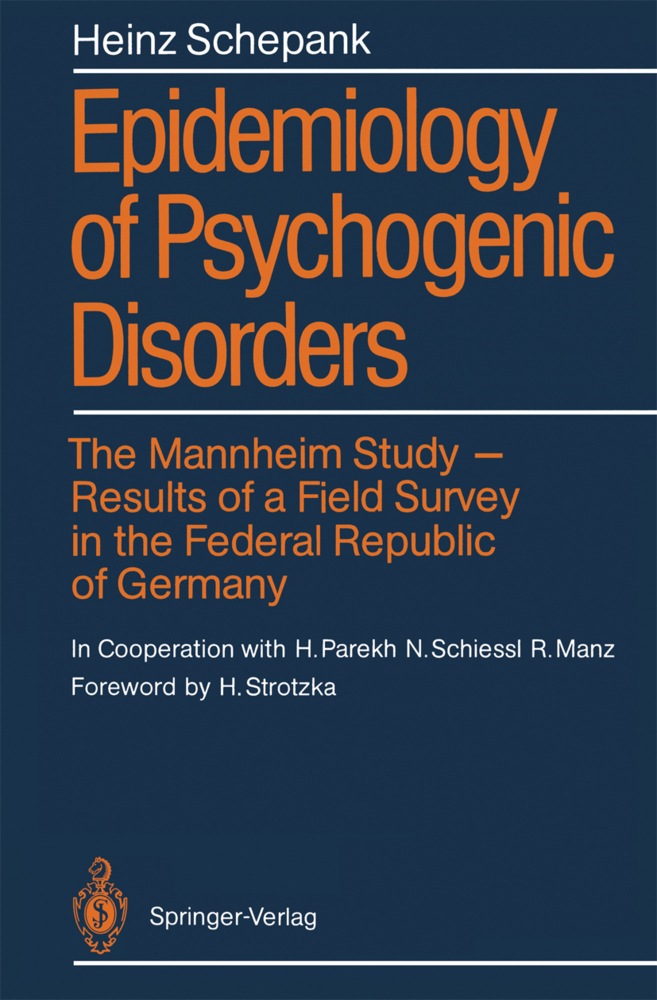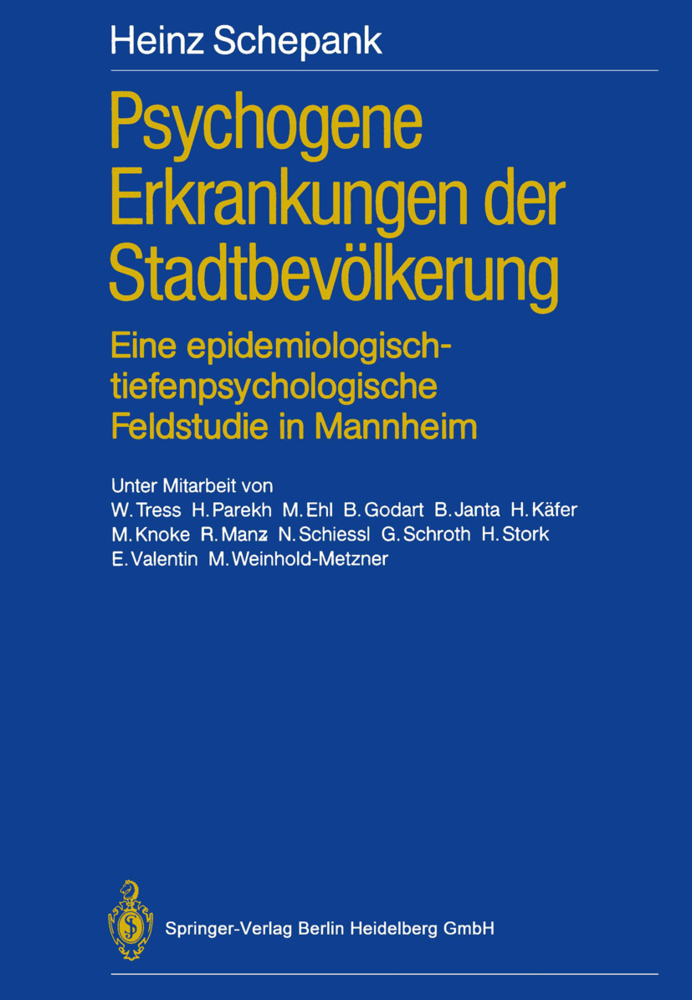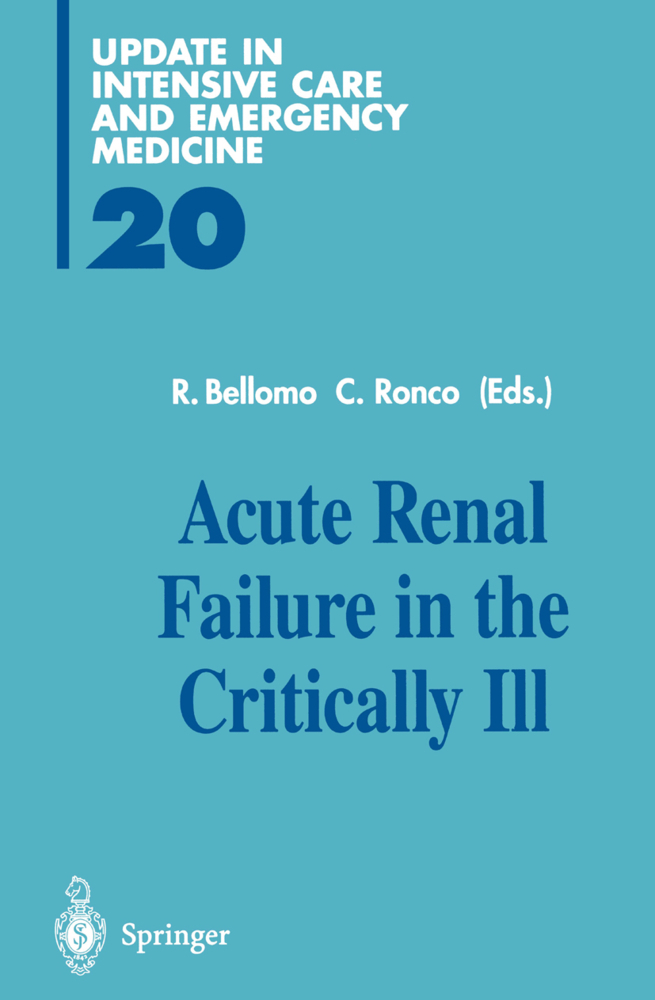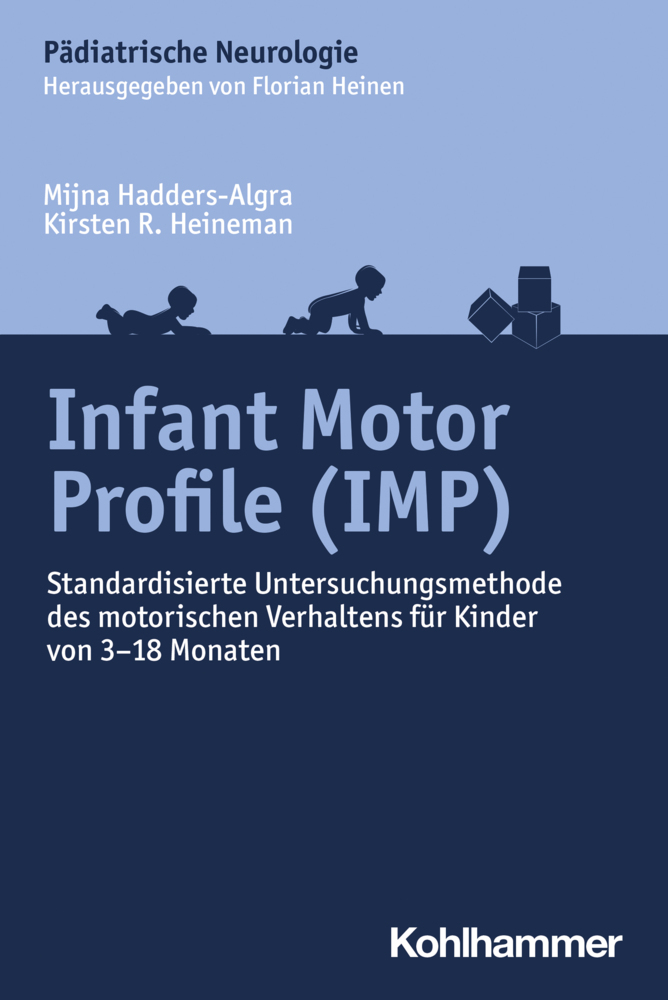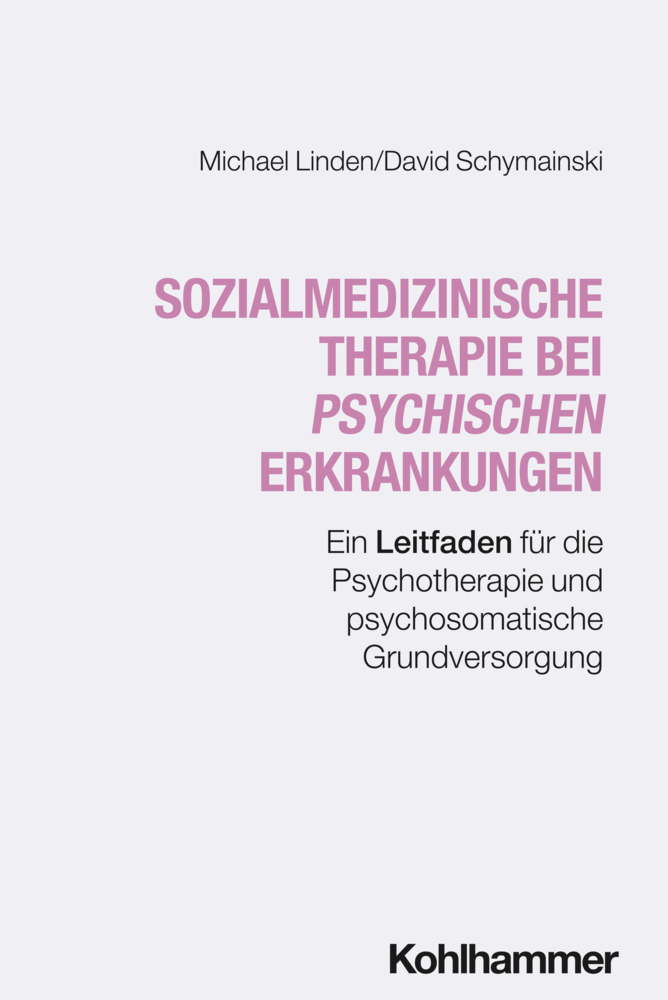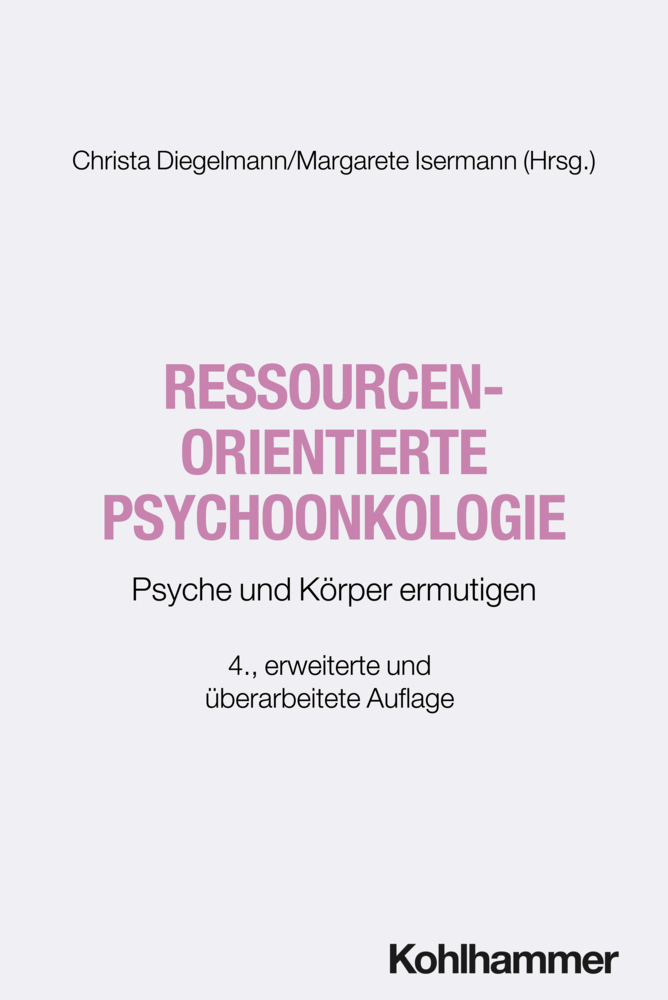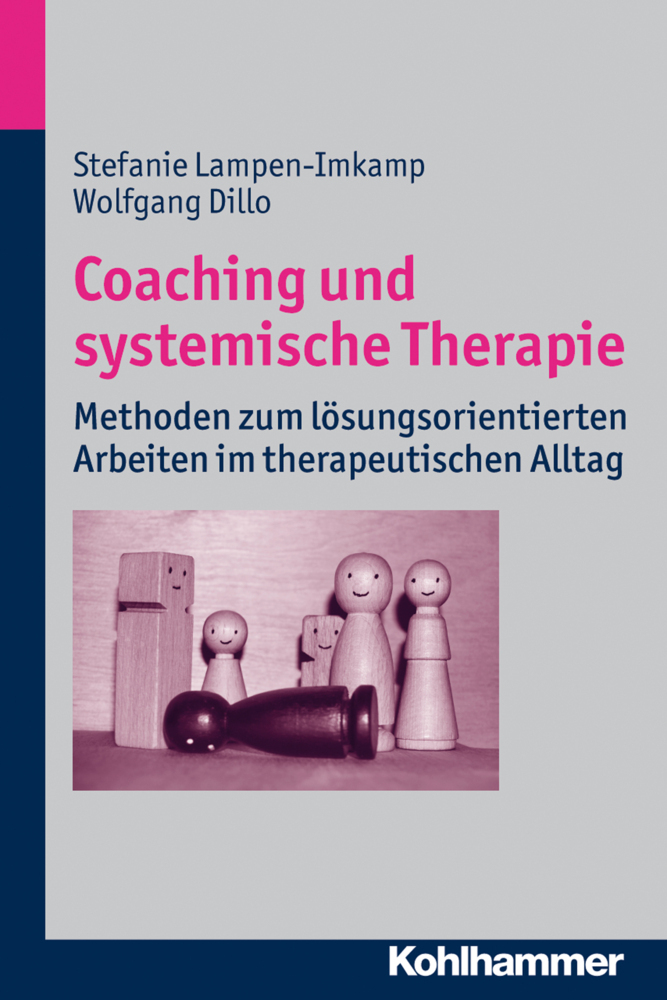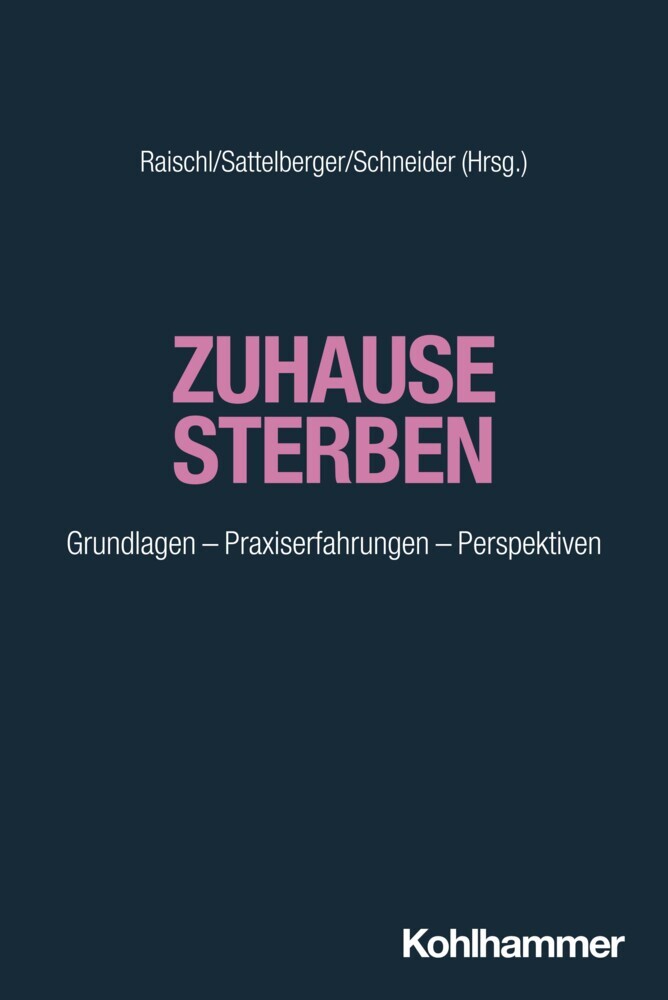Epidemiology of Psychogenic Disorders
The Mannheim Study · Results of a Field Survey in the Federal Republic of Germany
Epidemiology of Psychogenic Disorders
The Mannheim Study · Results of a Field Survey in the Federal Republic of Germany
Presents the results of a ten-year research project on the
epidemiology of psychogenic disorders (psychoneuroses, cha-
racter neuroses and psychosomatic disorders). The study con-
centrates on the age group relevantfor psychotherapeutic
care: 25-50 year-olds living in urban communities.
2 The Literature
2. Materials and Methods
3 The Project Design
3. Results
4 General Description of the Sample
5 Descriptive Epidemiological Results Derived from the Data Input Sheet
6 Analytical Epidemiological Hypotheses
7 Results Derived from the Interview Protocols
8 Psychological Test Results and Statistical Controls
9 Treatment Uptake and Indication for Psychotherapy
10 Prognosis and Course
11 A Complex Model for the Origin of Psychogenic Disorders (by N.Schiessl)
4. Discussion
12 Results from the Point of View of Epidemiological Research
13 Significance of the Results for Psychoanalysis
14 Implications for the Care of the Psychogenically Ill
15 A Retrospective Assessment and Prospects for the Future
Interview Design
Symptom Checklists (SC)
Inventory for the Documentation of Life Events
Additional Life Event Sheet
Symptom - Sign Inventory
Illustrative Examples for the Impairment Score
References.
epidemiology of psychogenic disorders (psychoneuroses, cha-
racter neuroses and psychosomatic disorders). The study con-
centrates on the age group relevantfor psychotherapeutic
care: 25-50 year-olds living in urban communities.
1. Background
1 Introduction2 The Literature
2. Materials and Methods
3 The Project Design
3. Results
4 General Description of the Sample
5 Descriptive Epidemiological Results Derived from the Data Input Sheet
6 Analytical Epidemiological Hypotheses
7 Results Derived from the Interview Protocols
8 Psychological Test Results and Statistical Controls
9 Treatment Uptake and Indication for Psychotherapy
10 Prognosis and Course
11 A Complex Model for the Origin of Psychogenic Disorders (by N.Schiessl)
4. Discussion
12 Results from the Point of View of Epidemiological Research
13 Significance of the Results for Psychoanalysis
14 Implications for the Care of the Psychogenically Ill
15 A Retrospective Assessment and Prospects for the Future
Interview Design
Symptom Checklists (SC)
Inventory for the Documentation of Life Events
Additional Life Event Sheet
Symptom - Sign Inventory
Illustrative Examples for the Impairment Score
References.
Schepank, Heinz
Parekh, H.
Strotzka, H.
Schiessl, N.
Manz, R.
Ehl, M.
Godart, B.
Janta, B.
Käfer, H.
Knoke, M.
Schroth, G.
Stork, H.
Tress, W.
Valentin, E.
Weinhold-Metzner, M.
Mills, Richard
| ISBN | 978-3-540-18027-2 |
|---|---|
| Artikelnummer | 9783540180272 |
| Medientyp | Buch |
| Copyrightjahr | 1987 |
| Verlag | Springer, Berlin |
| Umfang | XIV, 176 Seiten |
| Abbildungen | XIV, 176 p. |
| Sprache | Englisch |

